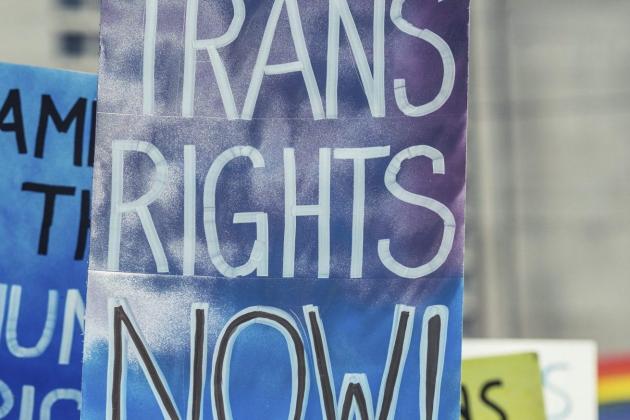
Originally published in the Huffington Post
After decades of activism, trans rights are starting to get the recognition they deserve. More than ever, trans people and their rights are being represented in the media and at the UN, our neighbours to the south just issued school guidelines that recognize the right to access bathrooms that correspond to gender identity, and on the International Day Against Homophobia, Transphobia, and Biphobia, our federal government introduced a bill prohibiting discrimination on the basis of gender identity and gender expression.
The gender identity and expression bill is long overdue, with similar bills having already been introduced seven times before. But what makes this a cause for celebration is that for the first time, it’s the government who is tabling the bill. Unlike previous private members’ bills, this one is much more likely to pass.
While all people are entitled to human rights protections, people with non-conforming gender identities and expressions (who may not fit into the socially constructed gender binary) are most at risk of heightened stigma, discrimination and violence.
In 2011, a nationwide survey found that more than three-quarters of transgender youth experienced verbal harassment in school and 1 in 3 reported physical violence. Earlier this month, a suspicious fire targeted the only medical clinic in Canada that offers gender reassignment surgery. And trans people of colour and trans sex workers are even more vulnerable to discrimination and violence.
Having trans rights enshrined in law means criminal acts motivated on the basis of gender identity or gender expression will be considered hate crimes, and that people who are employed by or receive services from the federal government, First Nations governments, or private companies regulated by the federal government (i.e. banks, trucking companies, broadcasters and telecommunications companies) will now be protected from discrimination on the basis of gender identity and expression.
While a number of provinces have already added gender identity and expression as protected grounds from discrimination, this bill will fill some gaps. The provincial legislation offers protection for many trans people who face unfair treatment when it comes to housing, employment, contracts, health care, and education, to name a few. But not all provinces and territories guarantee the same protections. Federal leadership is an important step towards ensuring that all people across the country are guaranteed their human rights.
This bill would go a long way toward equal protections for all trans people across Canada, and could be a promising example to follow for provinces and territories who haven’t yet adopted similar protections.
It is a strong first step, but when it comes to equality of rights, we’re not quite there yet. The government still has some ways to go before trans people in Canada and people of diverse gender identities and expressions are truly able to exercise and claim their full range of human rights.
The needs of trans people and people with non-conforming gender identities and expressions are often marginalized or omitted altogether from the planning of laws, policies and programs. Ignoring these needs has meant ongoing barriers in accessing services without fear of stigma or discrimination or seeking legal recourse for rights violations. For one, many trans people in Canada are still required to demonstrate proof of gender confirmation surgery or other medical treatment in order to change their name and/or gender in official documentation. And a third gender marker is still missing from government forms, census and other types of data collection.
Extending protection from hate crimes to include gender identity and expression is vital but needs to be accompanied by better supports for trans people to access public services like health and judicial systems and investments in data collection to inform better policy.
And discrimination against trans people is interwoven into so many other policies and services that need to be addressed. Barrier-free access to health care and housing, trans-inclusive sex education, and the decriminalization of sex work would go a long way in supporting trans rights.
There are many steps the government still needs to take. These are but a few examples. Most importantly though, whatever laws, policies and programs come next, people of diverse gender identities and expressions, and allied organizations, have to be meaningfully and significantly engaged in their design, development and implementation.